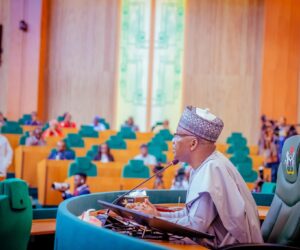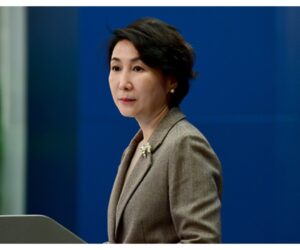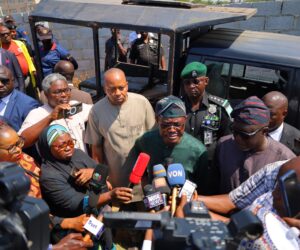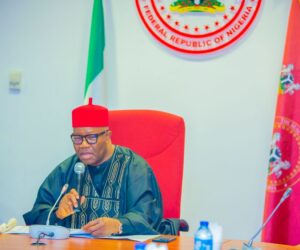President Bola Tinubu came into office promising that “Nigeria is back,” then framed his foreign policy around the now-familiar “4Ds”: Democracy, Development, Demography, and Diaspora. Two years on, his record shows meaningful movement on economic statecraft and regional crisis management, but also costly execution gaps that have blunted Nigeria’s leverage. The next two years can still be decisive, if Abuja converts headline-grabbing announcements into bankable projects, repairs its regional coalition, and fixes the machinery of Nigerian diplomacy.
What Tinubu Has Tangibly Gained
1) A revived pipeline for large economic deals
Tinubu has put presidential weight behind high-value commercial diplomacy:
Germany–Siemens “Presidential Power Initiative.” Abuja and Berlin re-upped the power-sector overhaul at COP28, and Nigeria has since moved into Phase 2, an attempt to translate an oft-stalled project into grid upgrades that ease Nigeria’s energy bottleneck. If delivered, that is the single most growth-relevant “diplomatic” win on the table.
Saudi Arabia engagement. Riyadh pledged refinery investment and support for Nigeria’s foreign-exchange reforms; Abuja later sought a multibillion-dollar trade facility. The Saudi track gives Nigeria options beyond Western lenders and, if structured well, can crowd in private capital for energy and logistics.
Brazil re-set. Petrobras’ return and five new MoUs, with an air link to São Paulo. point to a more purposeful South-South corridor in oil, agriculture, and aviation.
G20 channel. Nigeria leveraged its 2023 invitation to the G20 Leaders’ Summit to court investment and has stayed plugged into South Africa’s 2025 presidency (including an invitation to host a G20-linked event). Even without membership, that platform expands Nigeria’s convening power.
Why this matters: Nigeria’s growth constraint is not ideas but execution capital, stable power, logistics, and FX depth. Using summitry to unlock those inputs is precisely what economic diplomacy should do.
2) Recalibrating ECOWAS crisis management
Mr Tinubu’s early “red line” against coups collided with political reality, but the shift from coercion to engagement was ultimately pragmatic: ECOWAS lifted most sanctions on Niger (and some on other junta-ruled states) in February 2024, opening channels for security cooperation and humanitarian relief. Abuja then pursued a security MoU with Niamey. These moves preserved residual influence even as three Sahel states (Burkina Faso, Mali, Niger) proceeded with formal withdrawal from ECOWAS in January 2025.
Why this matters: Nigeria’s strategic depth rests on a functioning near-abroad. The pivot from maximal sanctions to selective engagement kept de-escalation options alive and limited spillovers on trade and cross-border security.
3) A coherent (and communicable) doctrine
The “4Ds” have given Abuja a short, exportable story about its foreign policy. Whatever one thinks of the branding, it has helped align ministerial talking points and signal priorities (diaspora finance, youth demography, democratic norms).
Where the Gains Fell Short
1) Promises outpaced inflows
Nigerian officials touted tens of billions in investment “commitments,” yet measured FDI remains weak and several flagship pledges are still at the MoU or feasibility stage. The credibility gap between announcements and disbursements has fed scepticism among investors.
2) Regional leadership dented
Despite Abuja’s efforts, the Alliance of Sahel States (AES) formalised its exit from ECOWAS in 2025. That is a structural hit to Nigeria’s integration agenda (trade, mobility, security). Rebuilding an architecture that works with or around the AES is now unavoidable statecraft, not optional idealism.
3) UAE channel unresolved
Reports and counter-reports about visa normalisation and shifting rules have left Nigerians and airlines in limbo. For a travel, remittance, and aviation corridor as consequential as the UAE, ambiguity has costs.

The Strategic To-Do List: How Tinubu Can Maximise Diplomatic Dividends
A. Convert MoUs to megawatts, cargo, and jobs (12–24-month delivery agenda)
1. Power: Ring-fence Siemens Phase 2 with a sovereign-backed completion account and independent project monitoring; publish a quarterly scorecard with sub-targets (substations commissioned, ATC&C loss cuts, grid uptime). Tie disbursements to verifiable milestones.
2. Energy/industry: Package the Saudi refinery and Petrobras tracks as bankable projects, clear permitting timelines, FX access rules, and local-content requirements that don’t scare off EPC contractors. Use a fast-track “One-Stop Investment Room” in Abuja to cut land, port, and offtake bottlenecks.
3. Trade corridors: Leverage the new Lagos–São Paulo air link for perishables and pharma supply chains; negotiate mutual recognition for standards and “green lanes” at customs to turn flights into freight value, not just passenger volumes.

B. Rebuild West Africa’s security-economy compact, with flexible geometry
4. Security compacts that coexist with politics: Institutionalise Nigeria–Niger joint operations against ISWAP and bandit networks irrespective of ECOWAS politics; expand intelligence fusion cells along the Sokoto–Kebbi–Zamfara and Lake Chad axes.
5. Variable-geometry ECOWAS: Offer AES states à-la-carte participation—trade facilitation, cross-border payments, power pooling—even if political integration pauses. Pair this with a Sahel Stabilisation Facility (arms-length from ECOWAS) to finance roads, fibre, and border markets that make exit economically costly over time.
6. People-first sanctions doctrine: Codify a rule that any future ECOWAS sanctions include automatic humanitarian carve-outs and time-bound reviews; Nigeria should champion this after learning from the Niger episode.
C. Fix the diplomatic machine that must deliver all of the above
7. Appoint, empower, and fund: Conclude ambassadorial appointments with a competency-first slate (deal-makers to the G20 and Gulf posts; protection-of-national’s experts to migration hotspots). Front-load Q4/Q1 operating funds to missions to end arrears and reputational damage.
8. Create an Investment Delivery Unit (IDU) in State House, co-chaired by Foreign Affairs, Finance, and Power, with a 10-project mandate (Siemens grid nodes, refinery rehab, Lagos logistics parks, gas processing). Publish monthly dashboards; let ambassadors escalate blockages straight to the IDU. (Nigeria’s problem is not “attract”—it is “execute.”)
D. Turn “Diaspora” from slogan to balance-of-payments instrument
9. Diaspora finance: Issue rolling diaspora bonds (short tenors, quarterly windows) and digitise KYC via remittance apps. Earmark proceeds to power and airport modernisation; publish use-of-proceeds audits to beat the trust deficit.
10. Consular reform: Standardise five-day passport renewals at high-volume missions with service-level guarantees; publish wait-time dashboards. Strong consular service is soft power, and investment due diligence runs through embassies first.
E. Use climate and food security to widen coalition partners
11. Climate-for-growth diplomacy: At COP30-31 and the G20 Johannesburg cycle, spearhead a “Baseload for Africa” initiative (gas-to-power + grid finance labelled as transition-compatible). Offer credible methane-leak abatement at home to unlock concessional climate funds for grid upgrades.
12. Brazil–Nigeria food corridor: Turn the Brazil opening into a bilateral on mechanisation, tropical seeds, and cargo cold-chain, where both countries are complementary. Tie it to AfCFTA export targets to make it regionally scaling, not bilateral silo.
F. De-risk the UAE and aviation file
13. UAE detente: Table a technical working group (Aviation/Interior/Foreign Affairs) with a 60-day deliverable: reciprocal visa categories, airline slots, and data-sharing on travel fraud. Signal certainty with a joint communiqué and updated travel advisories. Ambiguity is expensive for households and carriers alike.
READ ALSO: EXCLUSIVE: Real reason Tinubu sacked presidential aide Fegho Umunubo
The Bottom Line
President Tinubu has rebuilt access to capital, to summits, and to counterparts, and he steered ECOWAS away from an escalation spiral in 2024. Those are non-trivial gains. But access is not the same as influence. Influence comes when projects switch on, planes take off, borders stay open, and citizens feel it. That is why the next phase must be about delivery discipline at home and coalition management abroad.
If Abuja locks the Siemens schedule, closes two or three Saudi/Brazil deals to financial close, restores an ambassadorial corps fit for purpose, and re-invents ECOWAS around practical cooperation, Nigeria’s claim to regional leadership will no longer rest on slogans. It will rest on infrastructure humming, food moving, and borders secured, the quiet proofs of diplomacy that works.
Victor LIMAN is the former Chief Trade Negotiator and Acting Director General of the Nigerian Office for Trade Negotiations. Mr. LIMAN is also the former Head and Commissioner, Nigeria Regional Investment and Trade Office, China, with the concurrent mandate to oversee Nigeria’s trade and investment relations with South Eastern Asian Countries. [email protected] (+234 7011276040).












